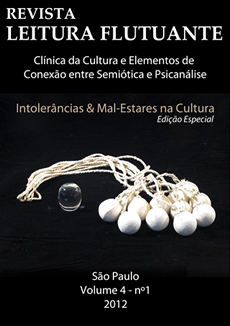Perpetual taboo: women and miscegenation in the United-States
Palavras-chave:
Exchange, Legislation, Melting Pot, Miscegenation, Levi-Strauss, TabooResumo
Woman’s fate as «object of exchange» (according to Claude Levi-Strauss’ theory of general kinship) because she is the «object of desire» (according to psychoanalytical theory) constitutes the kernel inside the problematic of miscegenation. Levi-Strauss’ concept allows us to understand the functioning of patriarchal societies, especially the role of woman in tribal or homogenous, “closed”, societies, but what about “globalized” and so-called postmodern societies? How does it apply for example to a multiracial society as the United-States? Further, how does a phenomenon as miscegenation functions in such a society? The paper shall argue that miscegenation has always been a taboo in American society despite its mythical credo of the “Melting Pot”. Having a model generic population, White Anglo-Saxon Protestant, American society is particularly reluctant to any “métissage”. We will see how American society confronts the phenomenon of miscegenation, and by what means it has set up to manage the issue. Finally, we will try to understand the problematic through the light of Anthropology as well as Psychoanalysis.
About the Author:
Han Lu, Ph.D Candidate (Ecole Doctorale Recherches en Psychanalyse et Psychopathologie, Université Paris VII - Denis Diderot), Master’s degree in Psychoanalysis (University of Paris VII - Diderot), Master’s degree in Philosophy (University of Paris I - Sorbonne), License in Philosophy (University of Paris I - Sorbonne), Bachelor of Arts in Philosophy (Antioch College). Interests & focus of research: Psychoanalysis and Anthropology; Political & Social Philosophy; History of Ideas.
Métricas
Downloads
Como Citar
Edição
Seção
Licença
Proposta de Política para Periódicos de Acesso Livre
Autores que publicam nesta revista concordam com os seguintes termos:
- Autores mantém os direitos autorais e concedem à revista o direito de primeira publicação, com o trabalho simultaneamente licenciado sob a Licença Creative Commons Attribution que permite o compartilhamento do trabalho com reconhecimento da autoria e publicação inicial nesta revista.
- Autores têm autorização para assumir contratos adicionais separadamente, para distribuição não-exclusiva da versão do trabalho publicada nesta revista (ex.: publicar em repositório institucional ou como capítulo de livro), com reconhecimento de autoria e publicação inicial nesta revista.
- Autores têm permissão e são estimulados a publicar e distribuir seu trabalho online (ex.: em repositórios institucionais ou na sua página pessoal) a qualquer ponto antes ou durante o processo editorial, já que isso pode gerar alterações produtivas, bem como aumentar o impacto e a citação do trabalho publicado (Veja O Efeito do Acesso Livre).


